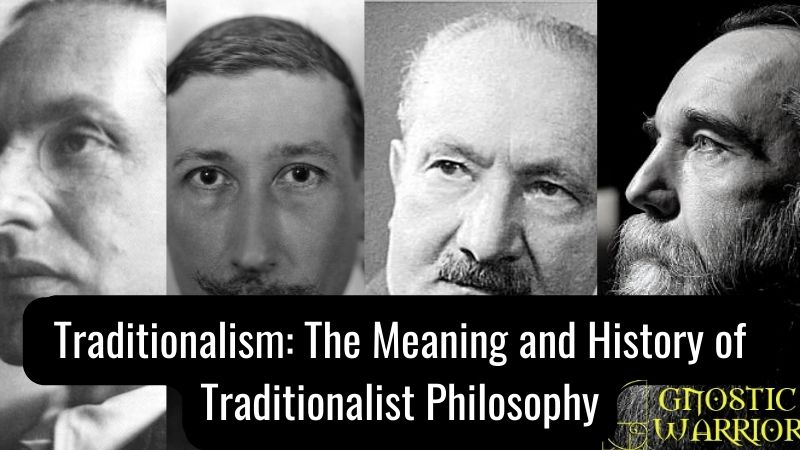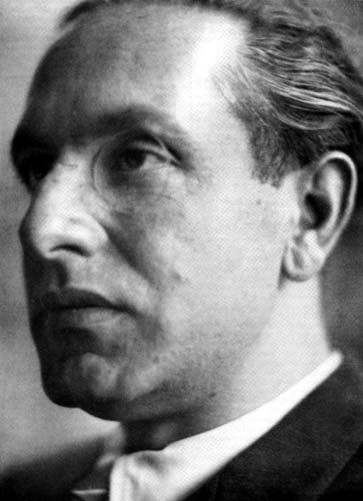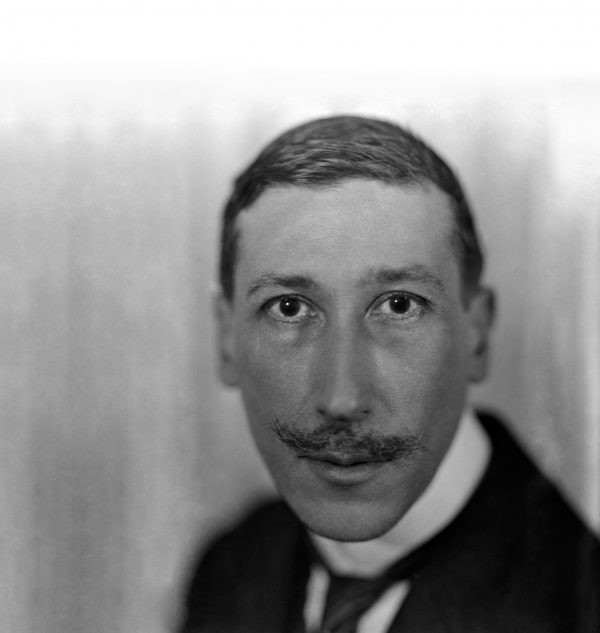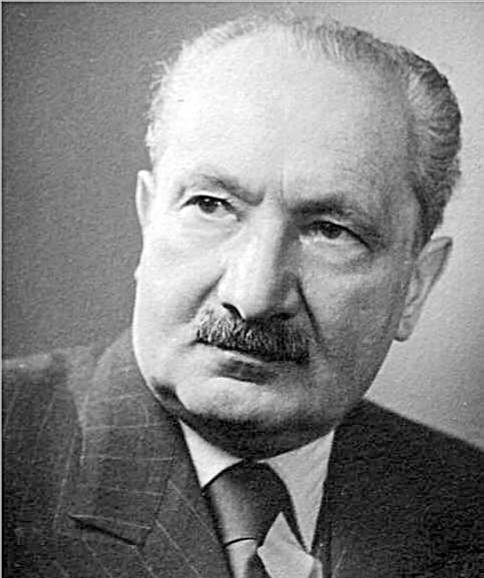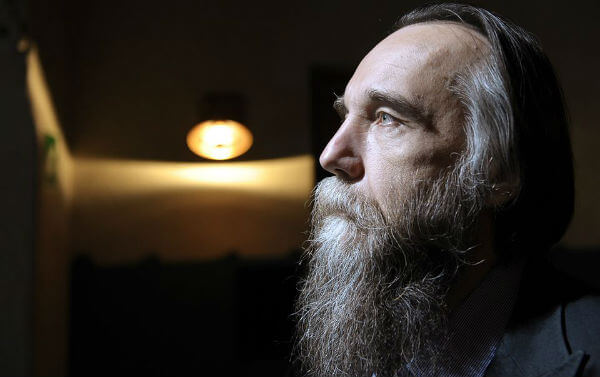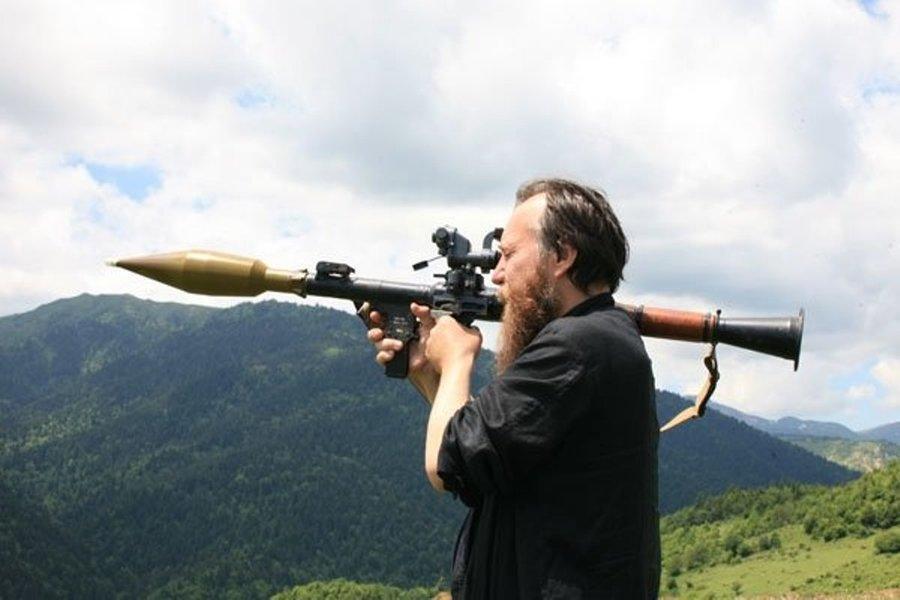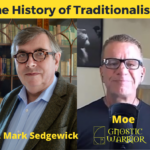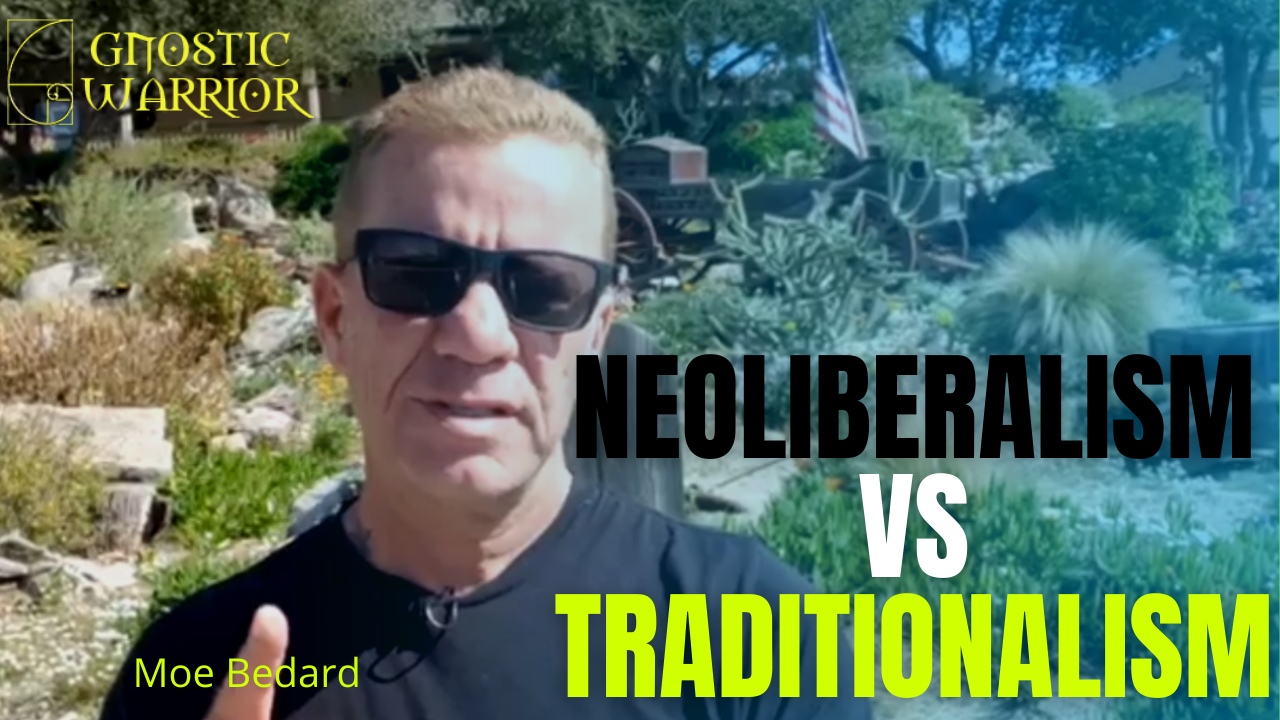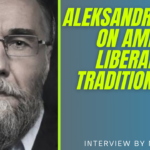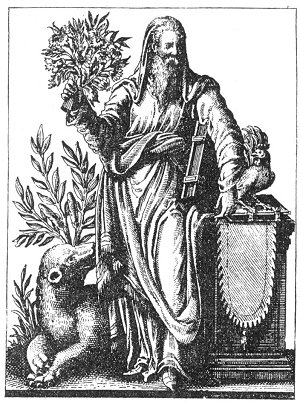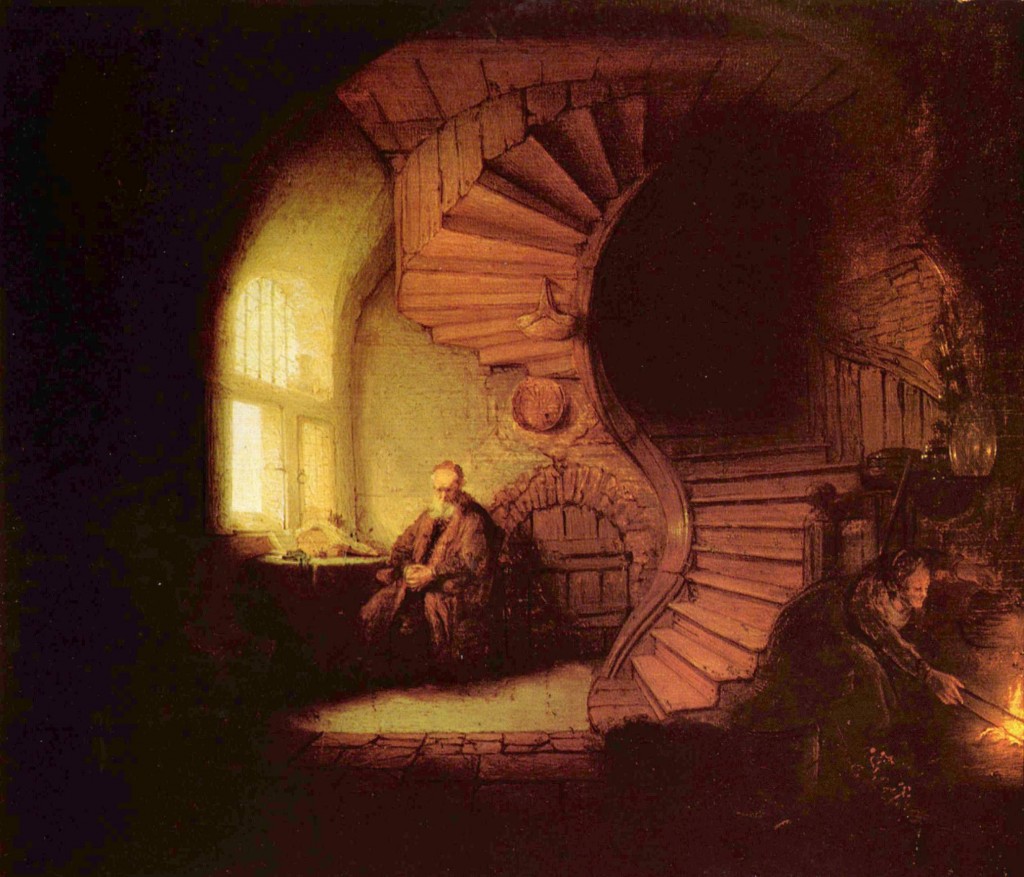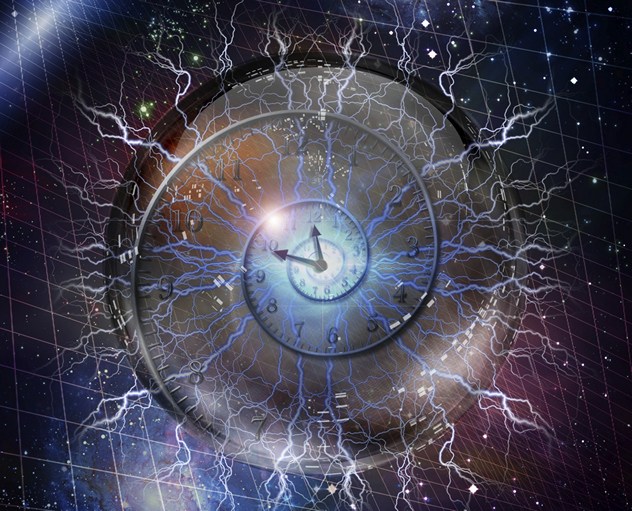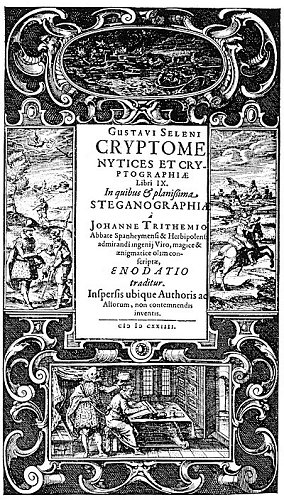“Traditionalism is the only way to preserve the world.” – Julius Evola
Traditionalism is a reactionary and counter-revolutionary movement that arose in the early 20th century. Traditionalists believe that there is a spiritual decay in Western civilization owing to modernity and rationalism, which they see as being based on Judeo-Christian values and defines itself as “a philosophy which favors traditionalism, hierarchy, and authority”.
The word “Traditionalism” derives from the Latin word tradere, which means “to hand down”. The term “traditionalist” derives from “traditional”, which refers to the commonalities between all traditions, or customarily accepted beliefs and practices.
It is a school of thought that believes in the primacy of the wisdom and knowledge of traditional societies, especially those that existed prior to the modern period or what is often called Modernity by Tradionialists. They affirm that there is a transcendent order, which constitutes the objective reality of human experience.
The transcendent order as the “Traditional” or “Perennial” Way, and and advocates the return to “the Old Ways” which they believe has been manifested in all cultures at all times.
Over the last 200 years, Traditionalist thinkers have criticized modernity and liberalism, while advocating a return to our original values and ways of life. It is not a unified movement, but rather various different traditions that have existed throughout history under this name.
The term “traditionalism” was first used as a self-descriptor by French writer François-René de Chateaubriand in 1821, although tradition had been used prior to this by Joseph de Maistre and other counterrevolutionaries. These ideas have been popularized by a number of writers and thinkers in Europe, Russia, and America. They include Julius Evola, René Guénon, Martin Heidegger, Carl Schmitt, and Aleksandr Dugin.
Traditionalism can be seen as an attempt to preserve the traditionalist ethos against modernizing trends in Western culture. This includes preserving the identity and customs of one’s people from the erosion of globalism and multiculturalism, which are seen as diluting traditional values and religion with foreign influences; for example: Christianity replacing paganism in Europe or Hinduism replacing Buddhism in India.
The traditionalist worldview sees humanity as being on a spiritual journey through time; it sees all religions as having an essential truth about this journey; it sees modernity as bringing us further away from this truth; and it sees modernity as being associated with increasing inequality, injustice and environmental destruction.
Traditionalists reject universalizing ideologies such as rationalism (the idea that reason is supreme), liberalism (the idea that individual rights are paramount) and socialism (the idea that government should be controlled by the community).
They have traditionally been opposed to both communism and capitalism, which they regard as modern manifestations of an anti-traditional system of society. They are also often opposed to progressivism and industrialization for similar reasons.
Traditionalists believe these ideologies are contrary to human nature and lead to moral decay because they undermine natural hierarchies.
Many Traditionalists believe that our present condition is due not just to bad politics but also to bad ideas (because politics are always based on ideas). Bad ideas that simply need to be destroyed. They believe that there has been a decadence of thought since modern times began, which has resulted in all kinds of irrational beliefs such as materialism, atheism, and liberalism.
Traditionalists believe that various aspects of society and social life are organic wholes that exist whether or not humans recognize or acknowledge their existence. They further believe that these wholes have an inborn “spirit” or “soul” that one can only understand intuitively, rather than rationally.
Traditionalists thus reject abstract rationalist notions like natural rights and social contract theory as a basis for legitimacy and authority. Instead, they espouse an organicist conception of society as a living organism with a spiritual soul through which “legitimate” authority must be exercised.
It is opposed by both liberal individualism and modernist historicism in all its forms. It rejects what it sees as the rootless cosmopolitanism inherent to modernity—including capitalism, individualism, egalitarianism and multiculturalism—as well as the secularization of religion into a mere human institution devoid of its transcendent purpose.
They argue that society has been thrown into confusion by waves of materialistic thinking and has forgotten its spiritual foundation. They wish to restore religious practices and beliefs that are not bound by time or space.
Some traditionalists support monarchy or other forms of non-democratic government; others support various types of autocracy or oligarchy; some support democracy if it can be shown that it is consistent with traditional values; others oppose all forms of government intervention in political affairs.
They believe that the way forward is not to be found in any political ideology — liberal or conservative — but rather in a return to what they see as ancient wisdom traditions which developed over thousands of years before Christianity arrived in Europe (and which existed even before Judaism and Islam).
Traditionalism has been accused of being related to several other movements within the 20th century, including far-right politics, fascism, and Nazism. However, most traditionalists adamantly reject these associations.
Meet the Traditionalists
The Traditionalist School (la scuola tradizionalista) was founded by Julius Evola (1898–1974), an Italian philosopher who rejected modernity in favor of an idealized past. He argued that there was a perennial spiritual conflict between Tradition and Modernity, and sought to restore what he saw as the virtues of ancient Greece and Rome: hierarchy, excellence, spirituality and heroism.
In his book Revolt Against The Modern World, Evola presents an extremely critical view of modernity and industrial civilization. He believed that Western civilization has been in decline since the 19th century because it had abandoned its traditional roots in favor of democracy, socialism and materialism. Evola argued that this decline could only be reversed by the development of an elite which would lead society towards an organic hierarchical order based on spiritual principles rather than liberal individualism.
Evola claimed that those people who are connected to their ancient traditions are those who are truly awake. He wrote in Revolt Against the Modern World;
“Beside the great “currents” of the world there are still individuals who are rooted in terra firma. Generally speaking, they are unknown people who shun the spotlight of modern popularity and culture.
They live on spiritual heights; they do not belong to this world. Though they are scattered over the earth and often ignorant of each other’s existence, they are united by an invisible bond and form an unbreakable chain in the traditional spirit… by virtue of these people, Tradition is present despite all; the flame burns invisibly, and something still connects the world to the superworld.
“They are those who are awake.” Evola wrote;
Evolian Traditionalism is thus a form of counter-Enlightenment philosophy, and stands in opposition to modernity, democracy and egalitarianism. It holds that the world changes in cycles: civilizations rise while others fall; humanity moves from one state of being to another. To Evola, these cycles corresponded with a natural law: what he called “metaphysics”.
According to the scholar Franco Ferraresi, he “is considered one of the most innovative and influential theorists of ‘traditionalism’—a current of thought within fascist ideology which emphasizes the need for a hierarchical social order based on natural differences.”
Next to Evola, René Guénon (1886–1951) was the most prominent figure of the traditionalist movement in twentieth-century France. He was a prolific writer whose works were influential all over the world and he also had an impact on Hinduism, Buddhism and Islam, as well as Christian theology.
Guénon developed the “Primordial Tradition”, in which he presented his works as elaborative of “traditional metaphysical principles” through his publication, “Études tradition nelles.” He wrote another important book on Traditionalism called Crisis of the Modern World (1927) where he explains how modern society is facing a crisis and how this crisis can be solved by returning to our spiritual roots. Evola wrote the introduction to the book.
In 1931 he wrote his most famous work, “The Reign of Quantity and The Signs of The Times“. This book has been translated into several languages and continues to be studied by seekers all over the world.
Guénon’s work is characterized by its uncompromising defense of traditionalism and its rigorous criticism of modernity. His writings have been described as “an unsystematic exposition of traditional doctrines”, but Guénon himself maintained that his work could be understood only within the context of the whole tradition; consequently, many of his works are often referred to as “classics”.
Guénon wrote;
“Where is the notion of a real hierarchy still to be found in the modern world?
Nothing and nobody is any longer in the right place; men no longer recognize any effective authority in the spiritual order or any legitimate power in the temporal; the ‘profane’ presume to discuss what is sacred, and to contest its character and even its existence; the inferior judges the superior, ignorance sets bounds to wisdom, error prevails over truth, the human is substituted for the Divine, earth has priority over Heaven, the individual sets the measure for all things and claims to dictate to the universe laws drawn entirely from his own relative and fallible reason.
‘Woe unto you, ye blind guides,’ the Gospel says; and indeed everywhere today one sees nothing but blind leaders of the blind, who, unless restrained by some timely check, will inevitably lead them into the abyss, there to perish with them.”
After Guénon, the next most important person was German philosopher and a founding member of the Frankfurt School, Martin Heidegger (1889-1976). His ideas have had an enormous impact on western philosophy, yet he remains one of the most difficult and controversial philosophers to read.
Although Heidegger did not claim to be or belong to any of the Traditionalist groups that Evola and Guénon had developed and was sometimes critical of Traditionalism. Although he is often described as a Traditionalist and a favorite philosopher for people such as Alexandr Dugin, because he believed that modern society had lost touch with its past and we needed to preserve it.
Heidegger said this about Traditionalism:
“There are many different kinds of traditionalism. Some people think that tradition means simply living in the past, but this is not true. Tradition only means maintaining something that has been handed down from generation to generation.”
“Tradition is not just re-enacting things from the past; it means preserving them so they can be handed down to future generations.”
One of his most important contributions to philosophy was his analysis of the concept of being and is often referred to as his “Being and Time” period. In this early period, Heidegger attempted to develop a philosophical hermeneutics that would be able to interpret all forms of human existence in view of their being in the world.
In particular, Heidegger made a distinction between two types of being: ready-to-hand (Zuhandenes), and present-at-hand (Vorhandenes). The former is an understanding of being that is based in everyday life, where things are useful to us and part of our lives; the latter is an understanding of being as something detached from our lives, which we can examine through reason alone.
This distinction has become known as Dasein-analytic or existentialism. In this kind of thinking we come to understand ourselves as human beings – in other words, we are not simply objects but subjects (what Heidegger calls Dasein). We are not simply products or objects, but subjects who have their own agency (being able to make choices).
His analysis focused on understanding being-in-the-world as being-with others (Mitsein). This approach was indebted to Martin Luther’s doctrine of justification by faith alone and Immanuel Kant’s conception of practical reason.
Heidegger also stated that human existence cannot be understood apart from its relationship with other people in the world. This relationship is always already there before us, as we find it in our everyday dealings with others. But it is not something that can be analyzed by science or philosophy, because it is always changing according to circumstances and traditions particular to each historical era.
He argued that science and technology were destroying our sense of tradition and replacing it with calculative thinking. This led to humans becoming soulless “dwellers” in technology-dominated cities who are unable to think deeply about their lives or to have meaningful experiences with other people.
Heidegger wrote;
“It is not enough to think of a tradition as a kind of intellectual property, in which we have invested our money and labor. We must also recognize that our tradition is directly responsible for our present condition, and that we are therefore obliged to it.
This obligation is what makes it possible for us to overcome the danger of becoming “strangers and sojourners” in the world.”
He famously said that “only a god can save us” from technology and industrial society (“Der Spiegel” interview 1966). His critique of modernity has been compared to that of Friedrich Nietzsche — another philosopher who was accused by some critics of being anti-Semitic — but it is also true that Nietzsche thought highly of Heidegger’s work.
Heidegger’s work remains controversial because of its association with National Socialism — he was a member of the Nazi party from 1933 until 1945 — and because of his political views after World War II.
If we are to examine this time period with the German NAZI regime, we can see that they had attempted to preserve the Traditions of their race and their so-called Arayan ancestors who were seen as biologically superior to other racial groups. Adolf Hitler promoted his ideaologies about Germany’s ancestors in his 1925 book, Mein Kampf. The think tank called The Ahnenerbe (German: [ˈʔaːnənˌʔɛʁbə], ancestral heritage) operated between 1935 and 1945 to promote their doctrines with a group of Germany’s leading scholars and scientists.
Traditionalist conservatism takes its name from the Traditionalists, a group of French intellectuals known as Les Veilleurs or “The Watchers,” who first met in 1928 at the Institut Catholique de Paris, a Jesuit-run graduate university dedicated to training priests for the Catholic priesthood.
The original members were: Charles Champetier (1890–1946), Marcel Haedrich (1892–1952), Étienne Gilson (1884–1978), Louis Massignon (1883–1955), Jean Ousset (1905–1974) and Louis Lecerf (1906–1972). They were joined later by such men as Henri de Lubac, Yves Congar and Jean Daniélou. The movement was part of a wider effort to defend the Roman Catholic Church against modernists who questioned some of its teachings.
Today, Alexander Dugin (Russian: Алекса́ндр Ге́льевич Ду́гин; born January 7, 1962) is one of the most influential and controversial Traditionalist thinkers on the world stage today. He is a Russian political scientist known for promoting a “traditionalist” worldview through his leadership of the International Eurasian Movement (Russian: Международное евразийское движение), a political party called “The Conservative Party of Russia”, and several books about geopolitics.
Dugin has been described as “Russia’s chief ideologist” by The New York Times. His work has been translated into many languages, including English, Spanish and Portuguese. He has influenced political movements from Ukraine to Brazil and Venezuela to Africa by providing them with a philosophical basis for their actions.
Dugin has expressed admiration for Julius Evola, who became an early influence on his thought and introduced him to Traditionalism; as well as for Martin Heidegar and Carl Schmitt, whose ideas on geopolitics influenced Dugin’s later works on geopolitics; and René Guénon (who Dugin calls “the master”) who introduced him to Gnosticism and Manichaeism.
He defines Traditionalism as a philosophy that “questions modernity” and advocates for a return to traditional values as “the recognition of the perennial character of human nature”. What is true, good and beautiful.
Dugin recently said;
“Traditionalism is a philosophy of life and a system of values based on the veneration of the past, particularly with regard to the preservation of what is perceived to be true, good, and beautiful.”
Dugin’s philosophy called Neo-Eurasianism or Fourth Political Theory (4PT). The 4PT is a syncretic ideology combining traditionalist ideas from Eurasian religions and European New Right with Russian nationalism and anti-liberalism. In 2006 he wrote The Fourth Political Theory, which proposed a new ideology for Russia based on traditionalism, conservatism and nationalism.
Dugin believes that Russia should be an empire like it used to be before Peter the Great. In his book The Fourth Political Theory, he argues for a postmodernist approach to politics:
“The Fourth Political Theory is thus openly opposed not only to liberalism but also to Marxism and fascism; it rejects them both as modernist ideologies that deny the uniqueness and specificity of each historical epoch.”
In 2007 he founded the Eurasia Party and in 2011 he left the party to create his own political party called Eurasian Youth Union (ESYU). The Eurasia Movement was established to promote Russian foreign policy in opposition to American hegemony. He has been described as a “key intellectual proponent” of the idea that Russia is destined to lead a new empire in place of the Soviet Union, which Dugin considers to have been usurped by Atlanticism (meaning liberalism) and globalism (meaning capitalism).
In a recent interview, Dugin speaks about the meaning of tradition and its relation to the West. He also talks about his role in Russia as a “philosopher” and what he hopes to accomplish with his work.
Question: What is your understanding of tradition?
Alexander Dugin said;
“Tradition is a complex concept. It is not just something that has existed for a long time, or that has been preserved from generation to generation. Tradition does not mean conservation of something that already exists; it means renewal and expansion of something that already exists.
Tradition is not the past but the future being born in the present,” Dugin said.
“Tradition is not a dead past but an alive future: when we look at tradition we see history being born again in us as we live our lives today. This concept is difficult for people today because they are used to living in front of their TVs or on Facebook where everything becomes “old news” within hours or minutes–or even seconds!
There’s no sense of continuity here; it’s all just fragments of information from various sources that have nothing in common except their ephemerality. We don’t live in one place anymore either; we’re constantly moving around from one place to another so there’s no sense,” he said.
While Dugin’s views are often described as fascist or neo-fascist, he rejects these labels as inaccurate and misused. In an interview with liberal Russian talk show host Ksenia Sobchak, Dugin claimed that any comparison between his views and those of Adolf Hitler was “ridiculous”.
He instead prefers to describe himself as a Traditionalist who advocates for “conservative revolution” against modernity.
Dugin recently said in an interview;
“The Traditionalists are not only a school of theology, but also a school of politics, and they have much to say about the laws of history. In particular, they believe that there is a law of cycles in history, according to which societies rise and fall according to their adherence or lack thereof to Tradition.
“The most important aspect of this Tradition is what I call the “vertical axis,” meaning the transcendent dimension of human existence. This does not mean that Traditionalists reject science or rationality — far from it! But it does mean that they think that there are levels of understanding in reality beyond our materialist vision; that is why we need both science and religion.”
In a recent interview I conducted with Alexandr Dugin on the Gnostic Warrior Podcast, he told me that this battle is not only against what he calls a Liberal Dictatorship that seeks to destroy our ancestral traditions and philosophical ideas, but for our very souls and for eternity.
He is not fighting just for the Russian Traditions, but the whole world’s Traditions.
We spoke about his 4th Political Theory and how it is the only political system right now that honors people’s traditions across cultures while bringing these issues to the political arena.
MOE: So you’re, you’re fighting for everybody’s traditions.
DUGIN: Exactly. I don’t fight only for the Russian tradition, my tradition, my church. I’m Christian. But I defend the principles that religion and tradition are not something that belongs to the past.
I argue that it belongs to eternity, but eternity is now, the past is now, and it will be tomorrow.
So that is the fight on the side of eternity, against the dictatorship or the temporality of the time of becoming. And we consider all these three models, ideology, communism, liberalism, and the French.
They are all based on a secular understanding of history. They are founded in a materialistic understanding of the world.
They don’t believe in eternity. Eternity doesn’t exist. There is only time. There is only this world. There is nothing outside of it.”
Here is my interview with Dugin.
In another article for The National Interest, Dugin is rallying the global troops of Traditionalists to join the fight against this dictatorship:
“All of us who consider ourselves traditionalists — whether religious or not — should join our efforts against the dictatorship of relativism and consumerism, against globalisation and its political instrumentality.”
I have found that a lot of what Dugin advocates for in the name of Tradition makes perfect sense. While his views at times can be considered extreme, we can also make a great case that the current Liberal Dictatoship are even more extreme to the point they seek to destroy all our Traditions – what is good, true and beautiful.
Instead, they want to indoctrinate the people and our children into their Godless Lberal religion that pisses on the past and makes up their own absurd ideologies, from changing the meaning of biology to what it means to be a man or woman and have a family by changing their genders and their identities.
So, how does a modern day Traditionalist fight against what seems to be a massive army of Liberal clones hell-bent on destroying your Traditions and indoctrinating your children into their Global Death Cult?
I will leave you with a quote by Julius Evola that accurately describes how Traditionalists battle the dregs of Modernity. Evola wrote;
“It is necessary to have “watchers” at hand who will bear witness to the values of Tradition in ever more uncompromising and firm ways, as the anti-traditional forces grow in strength. Even though these values cannot be achieved, it does not mean that they amount to mere “ideas.” These are measure.
Let people of our time talk about these things with condescension as if they were anachronistic and anti-historical; we know that this is an alibi for their defeat. Let us leave modern men to their “truths” and let us only be concerned about one thing: to keep standing amid a world of ruins,” Evola wrote. (Revolt Against the Modern World)
In other words, let the crazy Liberals keep spewing their irrational beliefs and acting like chimps. The more they do so, the easier it will be to defeat their ignorance and lies.
It is Traditionalist Watchers today, like Dugin, who believe that this is the Great Awakening and that we are in a war against Modernity. What he calls the “Serpents of Wisdom versus Serpents of Capitalism.”
It is philosophers like Dugin who are ready to defend these Traditions and, if needed, destroy Modernity into an eternal heap of ruins with Traditional ideas, and, if needed, one rocket launcher at a time.
One last final thought.
As an American, I’m on the side of Traditionalists and wish to fight for the original American ethos that honored their ancestors Traditions while also granting the people Liberty and the pursuit of happiness.
This is being stolen from us all as we watch the liberals indoctrinate our children with their bad ideas and they piss on our country’s values as it all burns right before our eyes.
Dugin is right. This is a battle for eternity.
One that I believe that this will culminate into not only a world war of ideas, but the final battle for the World Soul.
May the best ideas, men, and women win.

Moe is the founder of GnosticWarrior.com. He is a father, husband, author, martial arts black belt, and an expert in Gnosticism, the occult, and esotericism.

